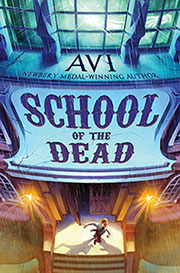 Forester (Aspects of the Novel) famously wrote; “The King died and then the queen died is not a plot. The king died and then the queen died of a broken heart is a plot.” We want to know why and how her heart was broken.
Forester (Aspects of the Novel) famously wrote; “The King died and then the queen died is not a plot. The king died and then the queen died of a broken heart is a plot.” We want to know why and how her heart was broken.
Almost all novels have some degree of plot suspense, the question of what happens next, of readers caring, being vital to sustain the reader’s attention. Sometimes the suspense is focused on character (what will happen to her?) sometimes on a developing plot. (Will they find the buried treasure?) When, however, the writer sets out to write a novel that is built entirely on suspense, we are speaking of what has come to be called a “thriller.” The word didn’t even come into literary language until the late 1880’s and the term “thriller-writer” first appears in 1925.
 I think my new book The School of the Dead (to be out late spring 2016) is suspenseful. It is absolutely meant to be.
I think my new book The School of the Dead (to be out late spring 2016) is suspenseful. It is absolutely meant to be.
A thriller requires a careful balance of probability with improbability, the ability to lead the reader by dint of character and/or situation, so that they must know what will happen next, creating what is often called a page-turner. The puzzle for the writer is he/she cannot be sure the reader will be caught up in the suspense. You sit at your desk and compose, but even when you think suspense, it is ultimately the reader who decides if you have been successful.
The few people who have read The School of the Dead think so. Hopeful, to be sure, but until my general readers find it suspenseful, I am left in suspense.